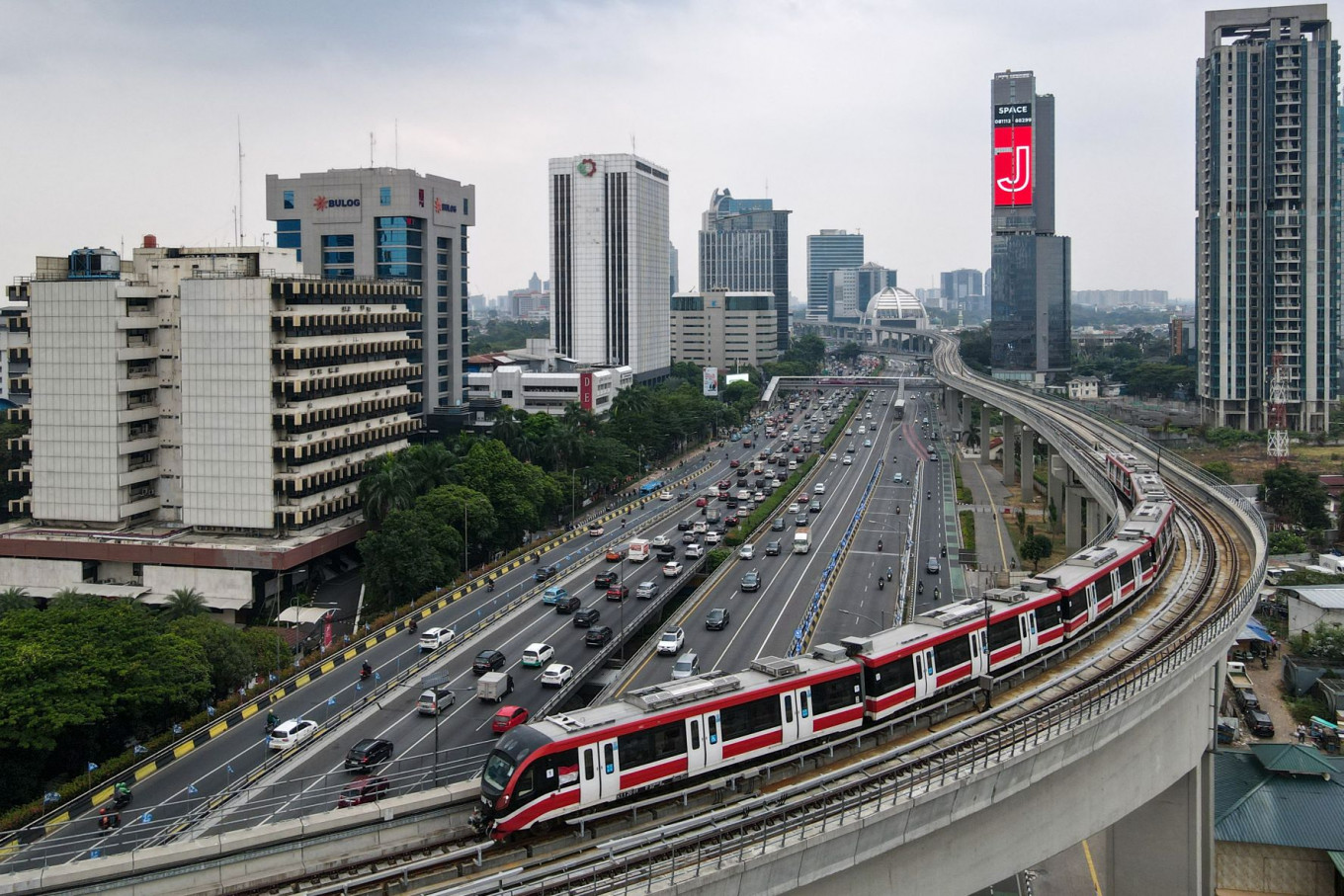Popular Reads
Top Results
Can't find what you're looking for?
View all search resultsPopular Reads
Top Results
Can't find what you're looking for?
View all search resultsA public disservice
Self-suffiency is a noble goal, but let's not force the issue if the expertise isn't available domestically, lest we end up creating another snarl with what was supposed to be a public transit solution.
Change text size
Gift Premium Articles
to Anyone
F
or a city like Jakarta that has millions of commuters traveling in and out every workday, the importance of a public transit system connecting it and its satellite cities cannot be overstated.
The frustration is great, therefore, if things do not work as intended, and that is an understatement on how the Greater Jakarta light rail transit (LRT) has operated so far.
The rail service linking Jakarta and the West Java cities of Bekasi and Depok has stayed in the headlines since its launch in late August, thanks to delays due to multiple causes. These include a broken door that left passengers waiting 40 minutes for a replacement train to arrive, as well as sudden halts to services due to power outages.
Even before its commercial launch, authorities had to suspend a trial run to fix software issues.
The media has also reported problems with the service’s public announcement system, and that traveling on the trains made by state-owned PT Industri Kereta Api (INKA) was rougher than the Jakarta MRT launched in 2019 because of hard braking and jarring acceleration.
More concerning is that the train wheels appear to wear out fast.
State-owned rail operator PT Kereta Api Indonesia (KAI), which also manages the Greater Jakarta LRT, admitted on Oct. 25 that 103 out of 234 scheduled trips per day were canceled because many trains were out of order.
At 44 percent, that is an unacceptable ratio of train cancellations and vastly reduces passenger capacity and comfort.
Even less acceptable is the government’s response: The transportation minister reportedly quipped that he was “not upset” with the new rail service while noting that the LRT project was INKA’s first in building such trains.
The question is, was it wise to make a manufacturing experiment out of a mass transportation project so vital to a crowded city blighted by perennial congestion and pollution?
The national pride and patriotism in using domestically manufactured rolling stock is understandable, but transportation is an urgent matter for the country and it should be viewed through the lens of public service, not industrial development.
Nobody is perfect, of course, but the Greater Jakarta LRT certainly got off to a worse start than the Jakarta LRT and the Jakarta MRT. The fact that experienced companies made the trains for these two separate systems may have something to do with that.
The Jakarta LRT uses trains built by South Korea’s Hyundai Rotem, which has industry experience dating back to the 1970s. Japan’s Nippon Sharyo, which made the rolling stock for the Jakarta MRT, has roots going back even further.
The public trains, buses and minivans serving Jakarta are already such a messy hodgepodge that only the most ardent supporters of mass transit, or those who cannot afford anything else, are willing to navigate the unintegrated modes of transportation that often involve long, uncomfortable walks.
Others simply hail a cab or order a Grab or Gojek to save themselves a lot of hassle and time.
The authorities should do everything to make life as easy as possible for those who keep the city’s roads a little less congested for the rest of us.
Unfortunately, the government appears to have become obsessed with the notion of self-sufficiency in everything, from sugar and rice to solar panels and COVID-19 vaccines. While self-sufficiency is a noble goal, its costs and benefits need to be weighed carefully, project by project.
For instance, Indonesia still relies on foreign aircraft because the costs of using domestic alternatives would be exorbitant.
Transportation infrastructure is a critical mission for any economy, as it enhances the overall efficiency of public life and business activities. Industrial policies and vested interests must take a back seat in such projects.
But there’s no point crying over spilled milk. The LRT system has arrived, so the best way forward is to improve them by solving the underlying problems.
That will require technical expertise and if that is not available domestically in the here and now, please don’t force it.











